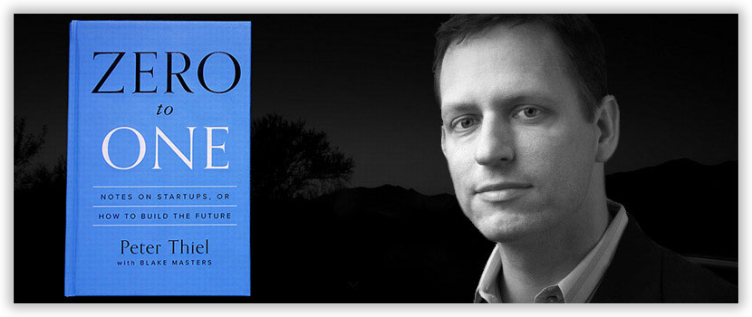What is the secret to building a startup?
A good question, and one that has been asked many times. If you’re a tech startup founder or a techpreneur, you’ve probably asked yourself this. Many people believe there is a singular path to follow in building a successful startup company as if there’s a secret formula to follow, but this couldn’t be further from the truth.
The world goes from 1 to n when we do what someone else already knows how to do, adding more of what is familiar. However, when you create something entirely new, you go from 0 to 1. An operating system won’t be created by another Bill Gates. A search engine won’t be created by the next Larry Page or Sergey Brin. The winners of tomorrow will not be those who engage in fierce competition in today’s market. They will completely avoid competition because their companies are special. So how is this made?
In his best-seller, “Zero to One” Peter Thiel gave us a uniquely impressive perspective on building a startup and the future. Here are 5 of our key takeaways:
- Make incremental advances
- A bad plan is better than no plan
- Improve on the competition
- Sales matter, just as much as the product
- Last can be First
Make incremental advances
Grand visions inflated the bubble, so they should not be indulged. Anyone who claims to be able to do something great is suspect, and anyone who wants to change the world should be more humble. Small, incremental steps are the only safe path forward.
Not every innovation involves a ground-breaking show. Yes, Peter did pose that it is better to risk boldness than triviality. But it might be good to also consider that majority of the time, progress in a market or industry is brought about by steady but careful moves. Although 98% of breakthroughs are incremental, we rarely hear about these minor advancements.
As a tech startup founder, you’ve probably observed how the transformation spearheaded by who we know as digital disruptors and category designers is the frequent subject of the headlines.
However, the truth is that many of the oldest and most well-known businesses in the world have endured for a very long time thanks to incremental innovation.
A bad plan is better than no plan
“But leanness is a methodology, not a goal. Making small changes to things that already exist might lead you to a local maximum, but it won’t help you find the global maximum.”
How do you find the threshold for that global maximum? How will you know it’s the one? As a tech startup founder, you may need someone to help build that innovation plan with your team.
Improve on the competition
“Don’t try to create a new market prematurely. The only way to know that you have a real business is to start with an already existing customer, so you should build your company by improving on recognizable products already offered by successful competitors.”
One of the effective strategies for testing in mature or congested markets against the established competition is to persuade your target customer that the situation has changed. “Product A may have previously satisfied your needs, but our product recognizes that your needs have evolved and we get that…” or something along those lines.
Sales matter, just as much as the product.
“If your product requires advertising or salespeople to sell it, it’s not good enough: technology is primarily about product development, not distribution. Bubble-era advertising was obviously wasteful, so the only sustainable growth is viral growth.”
Peter went on to dispel this dogma later on. You need to watch your numbers, too. Then again, you’re a tech startup founder or a CTO who needs to focus on product development. Leave the product-user or market-fit testing to your growth partner or marketing team.
Last can be First
You’ve probably heard about “first mover advantage”. If you’re the first entrant into a market, you can capture significant market share while competitors scramble to get started. That can work, but moving first is a tactic, not a goal. What really matters is generating cash flows in the future, so being the first mover doesn’t do you any good if someone else comes along and unseats you. It’s much better to be the last mover – that is, to make the last great development in a specific market and enjoy years or even decades of monopoly profits.
Being the first to market may have its benefits, but long-term success is a marathon, not a race. You’re a tech startup founder, not a sprinter. Creating a superior product or service that your rivals can’t catch up to is the ultimate endgame. Instead of attempting to build feature-for-feature to match the competition, concentrate on the few most crucial elements and make them ostensibly superior.
By simply delivering an improved user experience for the tasks your users care about the most, you will win over customers rather than by ticking off feature boxes.
So, is there a secret to building a successful tech startup for founders?
Short answer, none.
Such a formula for growth simply cannot exist; because every innovation in a tech startup is new and unique. Peter championed the idea that each moment in business only happens once. No definitive plan can describe in concrete terms how to be more innovative or how to grow bigger but you can learn from the journey of tech startup founders who came before you. Zero to One showed that the single most powerful pattern is that successful people find value in unexpected places, and they do this by thinking about business from principles instead of formulas.
First, principles. Then, formulas.
What are your principles? What exactly do you believe in? Let’s start your growth today.

